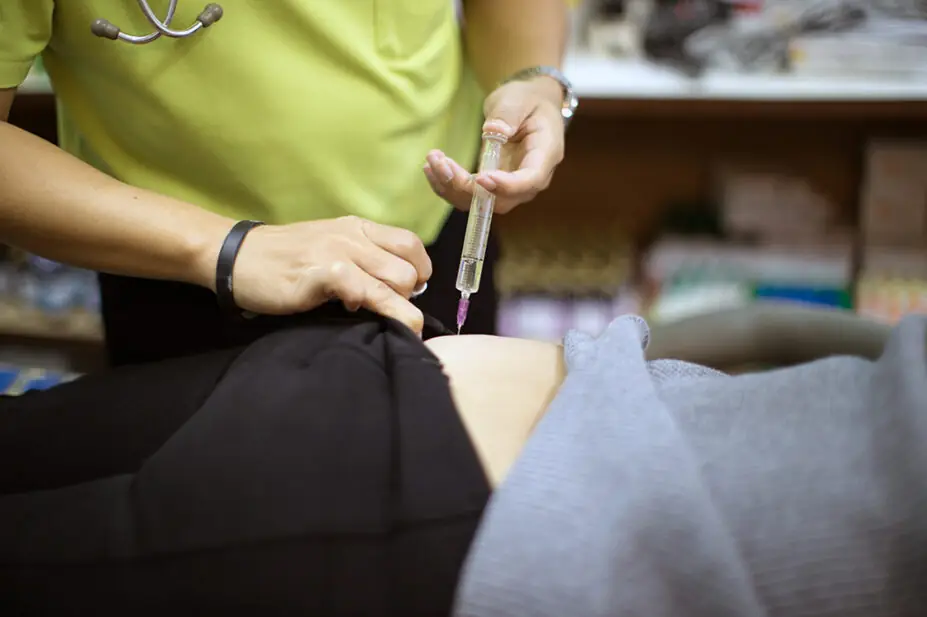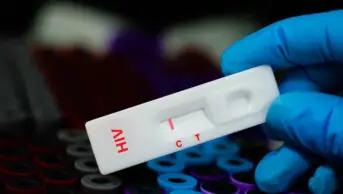
Shutterstock.com
The National Institute for Health and Care Excellence (NICE) does not recommend the injectable HIV pre-exposure prophylaxis (PrEP) treatment cabotegravir (Apretude; ViiV Healthcare).
In draft guidance documents published on 26 September 2024, NICE said the injection was not recommended within its marketing authorisation for PrEP because “it is not possible to determine the cost-effectiveness estimate for the whole population without further analyses from the manufacturer”.
However, it added that people who had already started NHS treatment with cabotegravir before the draft guidance was published would not be affected by this recommendation.
Cabotegravir is an antiretroviral drug that works by blocking the integrase enzyme, which is required by the HIV-1 virus to replicate in the body.
In May 2024, cabotegravir 600mg prolonged-release suspension — the first long-lasting injection treatment for prevention of HIV-1 infection in the UK — was approved by the Medicines and Healthcare products Regulatory Agency (MHRA), alongside a 30mg film-coated tablet formulation.
In the draft guidance, NICE said that cabotegravir had not been directly compared in a clinical trial with no PrEP; although, an indirect comparison suggests that it is more effective compared with no PrEP.
“There are difficulties in determining who would have cabotegravir in NHS clinical practice and how to identify people who cannot have or tolerate oral PrEP,” it said.
“There are also uncertainties about how the clinical evidence applies to these populations.”
It also said that the manufacturer had used a “narrower population” in its submission for a marketing authorisation — people who cannot take oral PrEP and people who do not take oral PrEP exactly as prescribed.
The populations who took part in the original clinical trials did not align with the smaller populations covered by the company’s proposed positioning of cabotegravir in their submission, NICE said.
It concluded that it was not possible to determine the cost-effectiveness for the whole population without further analyses from the company and so did not recommend cabotegravir.
Commenting on the decision, Heather Leake Date, consultant pharmacist in HIV and sexual and reproductive health at University Hospitals Sussex NHS Foundation Trust, on behalf of the HIV Pharmacy Association (HIVPA), said: “Injectable PrEP is effective, and for some people it will be the most appropriate method of preventing HIV acquisition. ViiV’s submission to NICE attempted to define the population for whom cabotegravir PrEP is most likely to be indicated and modelled the cost-effectiveness of that scenario, rather than the wider indication of the marketing authorisation, hence NICE have asked for additional pharmacoeconomic modelling to reflect the product licence.
“I encourage interested parties to respond to the NICE consultation and await with interest the final guidance which is due to be published in January 2025, following review of the newly-requested cost-effectiveness data.”
Steph Tyler, HIV PrEP implementation and sexual health pharmacist and co-chair of the PrEP Pharmacist Network (PrEP PharmConnect), said: “The announcement regarding NICE’s initial draft guidance to not approve CAB-LA for PrEP is disappointing. It is essential we now carefully consider which population groups would benefit from CAB-LA. We need alternatives for individuals who cannot take oral PrEP but remain at risk of HIV acquisition.
“Furthermore, CAB-LA PrEP is among the first medications to be studied in a large randomised controlled trial involving cis-gender women. Should the decision be appealed and CAB-LA ultimately receive approval for PrEP, it is vital that we learn from the rollout of Descovy PrEP, which has resulted in geographical disparities in access due to commissioning pathways that limit availability to sexual health clinics associated with acute Trusts providing HIV services.”
A joint statement from eight organisations and individuals in the HIV sector, published by the Terrence Higgins Trust on 26 September 2024, said they were “deeply disappointed” by the draft decision.
The statement added that alongside currently available prevention tools, the injection was “an innovative, effective and much-needed alternative for individuals who struggle with accessing or adhering to daily oral PrEP”.
“It is important that NICE has recognised injectable PrEP as a valuable option. We will be responding fully to the areas raised for the next round of the NICE consultation and will demonstrate the overwhelming value and merits of long-acting PrEP options in preventing HIV transmission,” the statement added.
“For many, especially gay and bisexual men and other men who have sex with men, daily PrEP pills are highly acceptable, well-tolerated and cost-effective for the NHS to administer. There are, however, significant inequities to PrEP access and social inequalities which mean that for many groups, oral PrEP options have not been able to bridge these divides.”
The draft NICE guidance is open for consultation until 17 October 2024.


